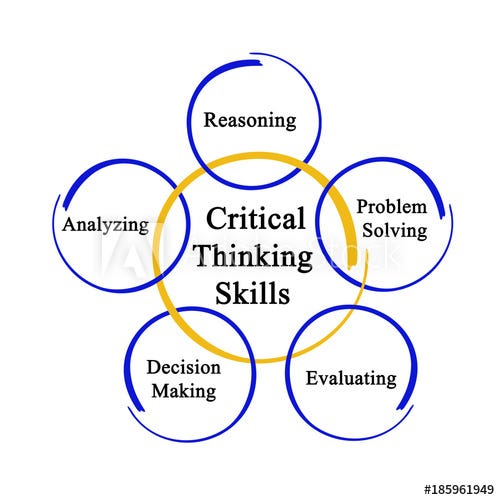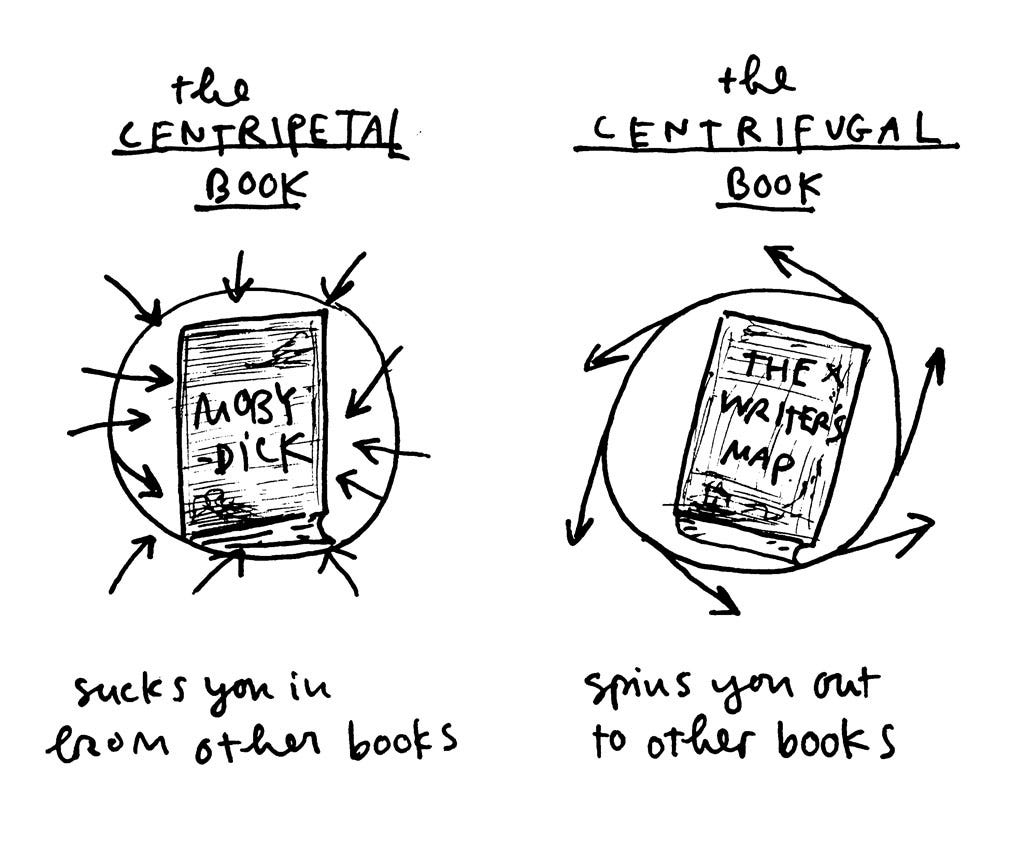Critical Thinking, Diderot Effect, A tool for problem-framing, a way of looking at books
The High Five - Edition #27
Hello friends,
A warm welcome to all the new subscribers. Thank you very much for subscribing to ‘The High Five’ and I am positive that these posts and curations make interesting reads.
A confession: I have been a little unwell over the past few weeks, which has caused some interruptions to my weekend plans and ‘The High Five’ editions. Some back-pain issues have resulted in some changes in my lifestyle/schedules. While I am coping well, the changes to the schedule are something I am still figuring out.
Anyway, here is what we have this week:
All about critical thinking
The Diderot Effect
A tool for problem-framing
Books that are centripetal and centrifugal
A quote about changing the people in your life.
Leadership Skills: All about Critical Thinking
Years ago, when I transitioned from an individual contributor role to a manager role, one of the often-repeated pieces of advice I got was to improve 'critical-thinking skills’. But I rarely got a good roadmap (from my previous coaches) to improve that skill. So I had to depend on leadership training and internet research, to truly internalize the meaning and application of critical thinking skills. Critical Thinking is not a skill that you acquire once for all and be done with it. It needs to be learnt, honed, practised, and observed.
I recently came across this article which did a good job at condensing everything one needs to know about Critical Thinking. Right from defining the skill to explaining with some examples and providing some ways to improving critical thinking - this article packs in a lot and I think it is a must-read for anyone who receives the feedback (without much guidance) that they need to improve critical thinking.
Minimalism: The Diderot Effect: why we buy things we don’t need
In the last 1-2 years, my interest and proclivities towards minimalism have been increasing a lot. While I haven’t read as much as I actually wanted to, about minimalism, now and then, a few interesting articles do come my way. This one by Ness Labs explains the ‘Diderot Effect’ - a tendency to over-consume, mostly caused by our natural need for betterment. I first came across this phrase in the book ‘Atomic Habits’ by James Clear (I think). James, in fact, wrote a post also, about Diderot Effect. A very interesting story there. Both these posts share some good tips on how to manage the Diderot Effect.
Management: The most fundamental problem-framing tool ever
Many companies/businesses today are trying to articulate or at least broadcast their purpose, more vociferously at the apex of their values and construct. ‘Purpose’, in the last decade or so, has become one of the most important words in the CEO interviews, if not the board-rooms. The emphasis on the ‘Why’ is capturing the imagination of a generation of workforce that is trying to sneak in a new mantra - “profit with purpose”. And that essence is broken down to every small component of work, where each work unit or project or problem has a ‘why’. The ‘how’ of problem-solving, these days, is the domain of creative thinkers and innovation experts.
This post by Daniel Stillman posits that both ‘why’ and ‘how’ are equally important and they, in a way, co-exist.
Why and how exist in conversation with each other. A why without a how creates big-picture ideas that are just castles in the air. A how without a why has no soul.
Daniel then proceeds to give us what he calls ‘abstraction laddering’ - which is a great tool for problem-solving or rather problem-framing. Give it a read. I found it extremely useful and worth-saving.
An interesting way of looking at books: Centripetal books and Centrifugal books by Austin Kleon
Ever since I read Austin Kleon’s ‘Show your work’, I became his admirer and I like the way he writes (and the way he keeps up the practice of writing). In one of his recent posts, he shared this interesting way of looking at books - centripetal books and centrifugal books. The image pretty much sums up what he means. But do read on if you are curious.
A quote I found extremely interesting: “You cannot change the people around you. But you can change the people around you” - anonymous.
I recently discovered this beautiful thillana - a composition by Late. Lalgudi Jayaraman - in Raag Bhageshree. Rendered by his daughter Lalgudi Vijayalakshmi, this version is a delight.
If you liked this edition of ‘The High Five’, do share it with a friend who might like it too.








